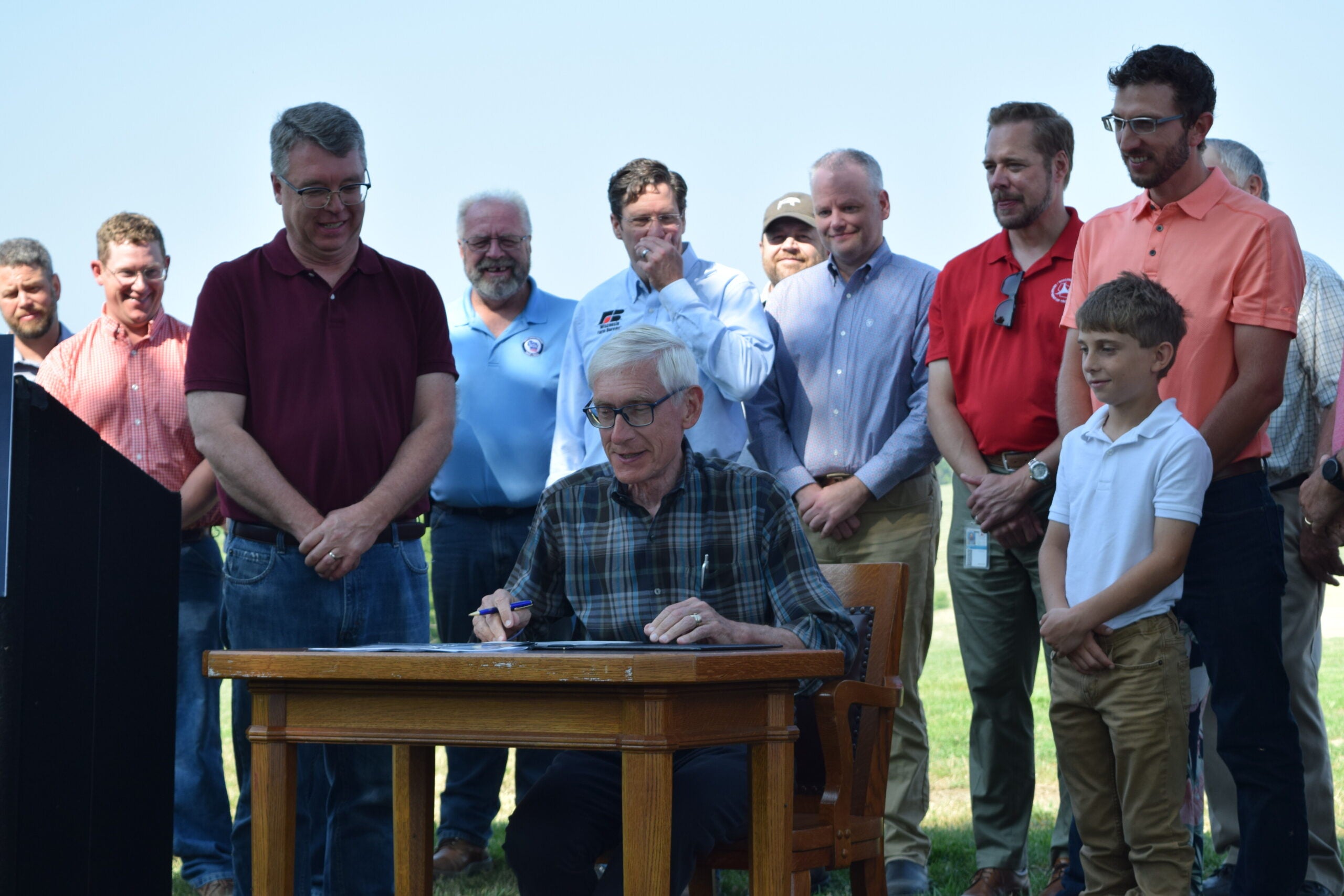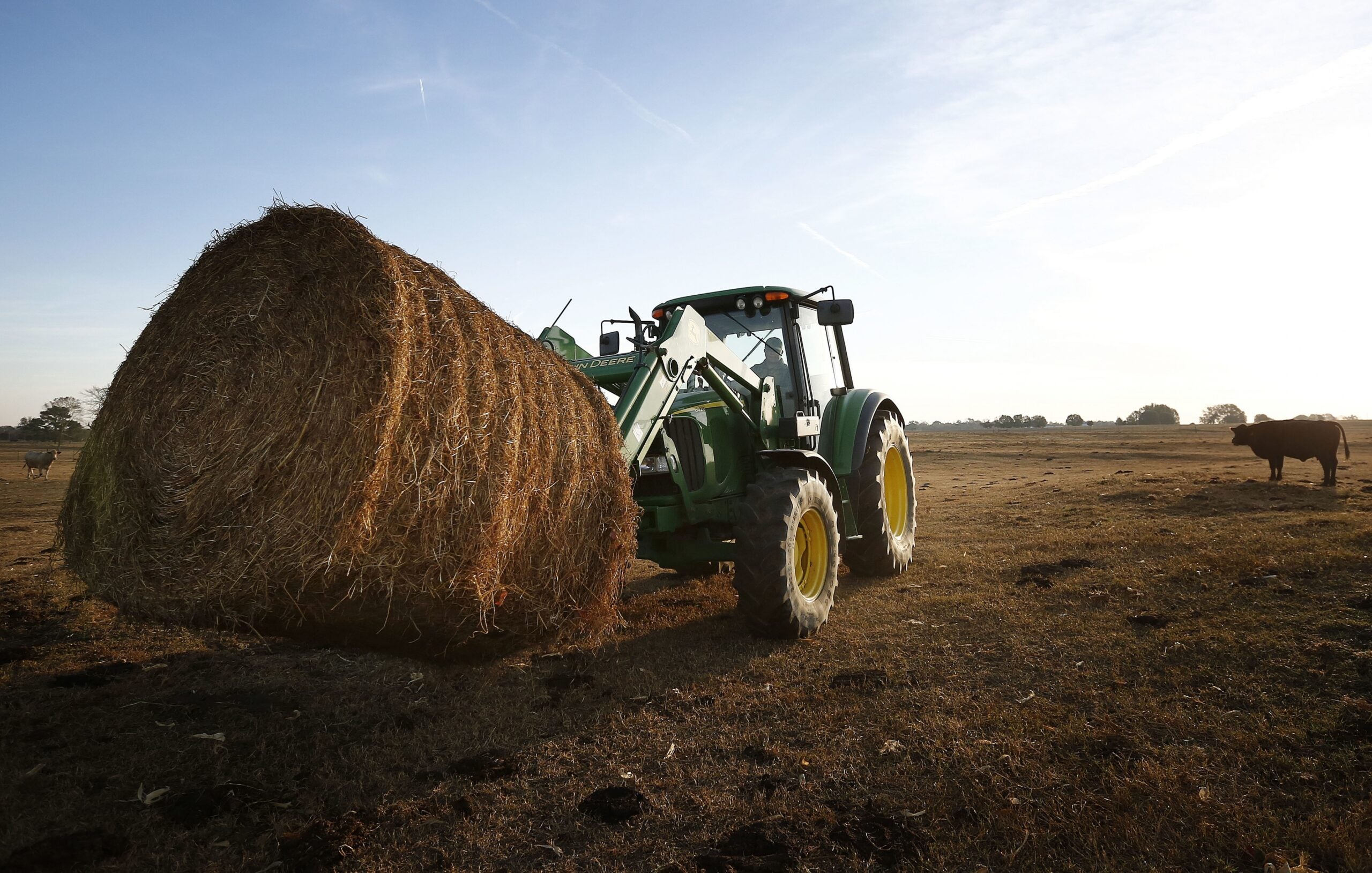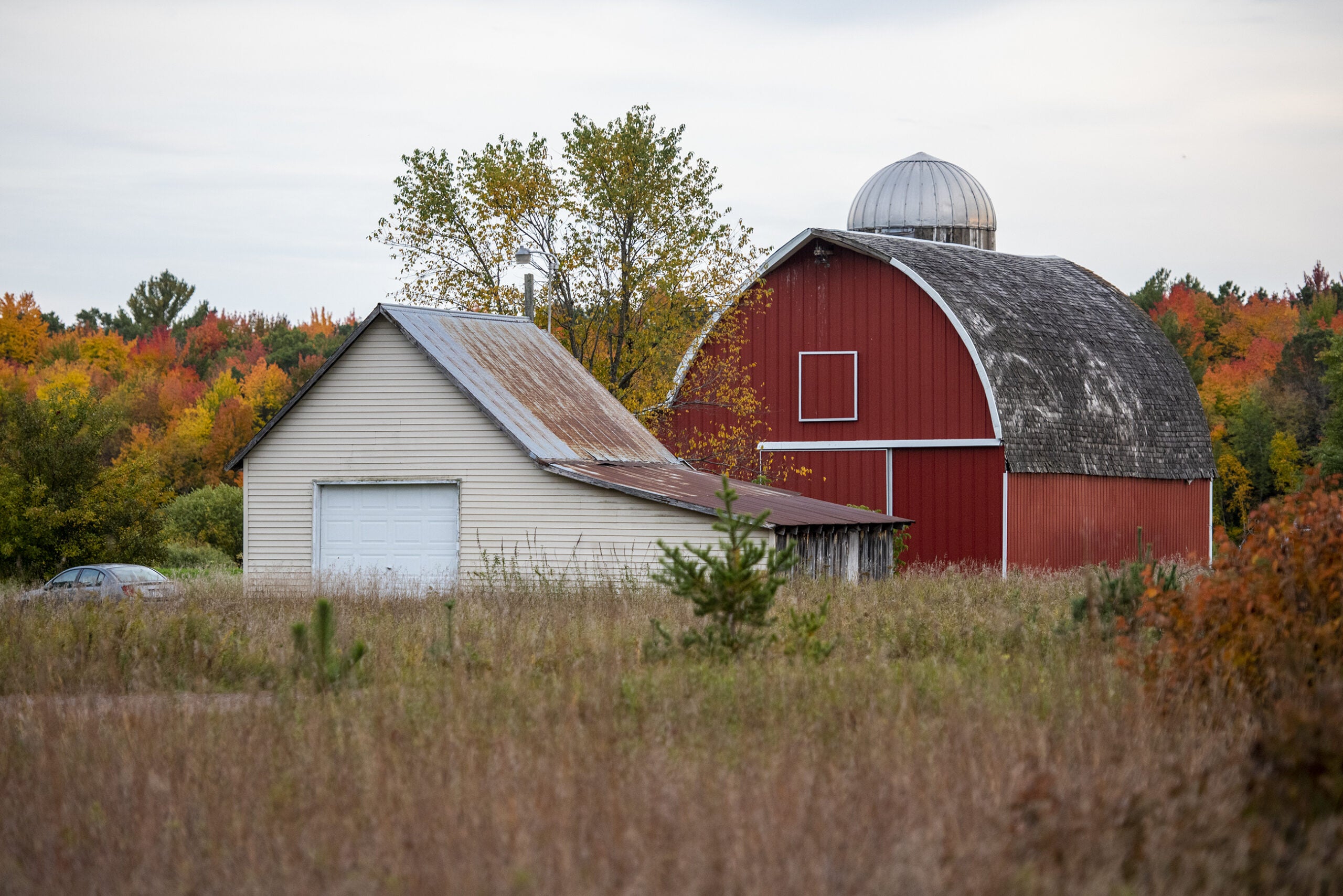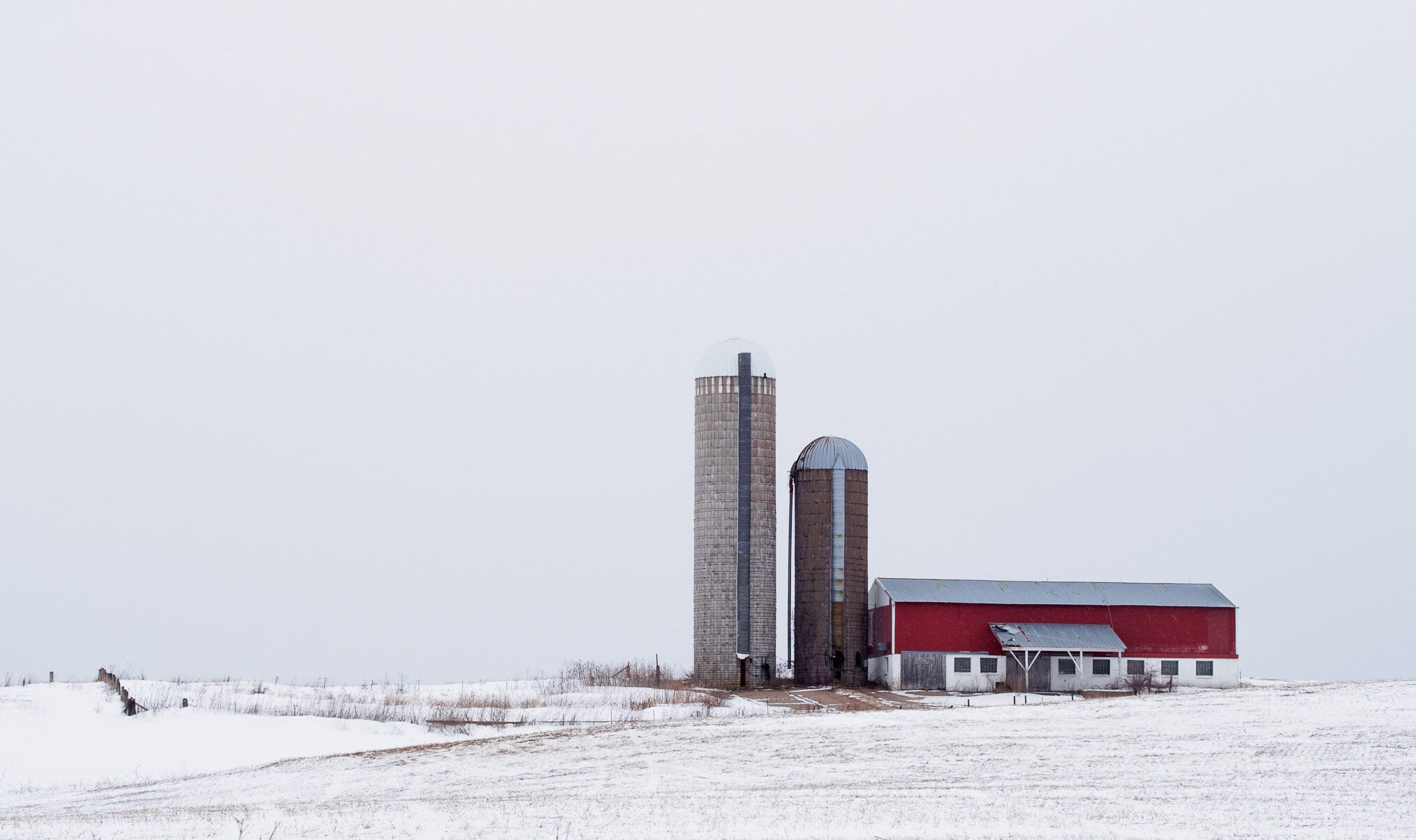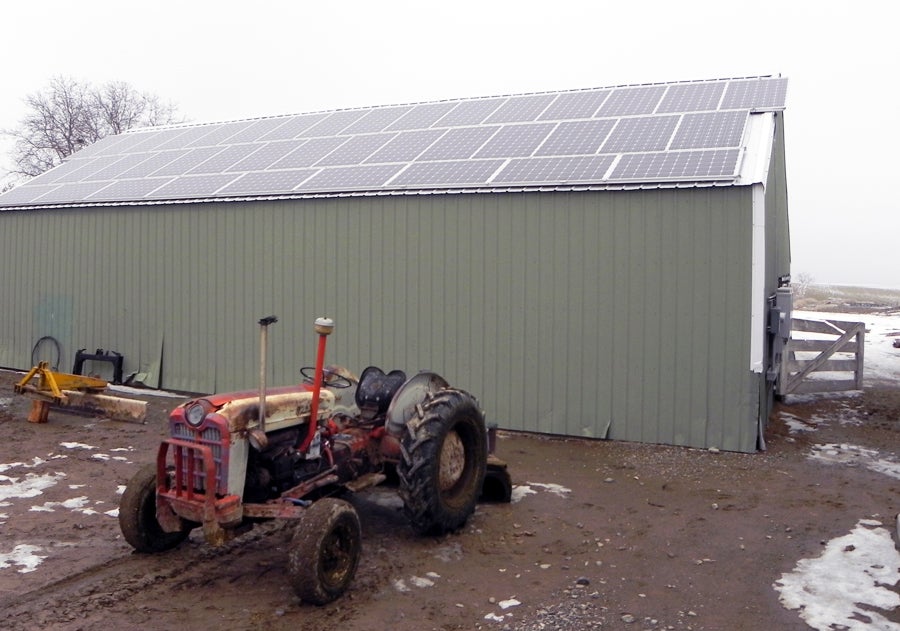Wisconsin’s rural communities will soon have more help paying for road improvement projects that benefit farms.
Gov. Tony Evers signed legislation creating the Agricultural Roads Improvement Program into law on Wednesday.
Created under the existing Local Roads Improvement Program, the ag roads initiative will reimburse local governments for repairs to roads, bridges and culverts used by farms that would likely not receive other state aid. It prioritizes projects that serve the largest number of farms or eliminate weight restrictions that can restrict farm equipment.
Stay informed on the latest news
Sign up for WPR’s email newsletter.
“Creating this avenue for funding will go a long way to help protect farmers’ bottom line and the equipment they rely on daily,” Evers said during a signing event at Hamburg Hills organic dairy farm in Vernon County.
The legislation was sponsored by Republicans and a handful of Democrats. Evers said the bill shows that both parties can come together to pass legislation despite the partisan rhetoric that often dominates politics.
“This didn’t come from my budget. It came from the people that serve in the Assembly and the Senate,” Evers said. “I’m very proud to sign it, and it’s obviously one that’s really important. And over time, it’s going to make a significant difference in the quality of roads in rural Wisconsin.”
Republican state Rep. Travis Tranel of Cuba City, who helped author the bill, said he was also pleased to see bipartisan support for the new funding program.
“More importantly, it had support from both rural people, who are obviously going to benefit the most, but also from urban people,” Tranel said. “I think that’s really important to recognize that what’s good for one part of the state of Wisconsin is good for the state as a whole.”
Tranel, who is also a dairy farmer, said the state’s infrastructure hasn’t kept pace as farms have grown larger. He acknowledged the new reimbursement program won’t fix all the infrastructure problems facing rural communities, but said it’s a step in the right direction for local governments.
Tim Servais and his family have operated Hamburg Hills farm since the early 1970s. He said a lot has changed in agriculture since his father started the business. But many of the roads in rural counties like his haven’t been updated.
“The tractors have gotten so much bigger and the equipment we pull so much bigger that it’s hard on the roads,” he said. “They have to be fixed, but the dollars aren’t there in local governments.”
Servais said farms aren’t the only ones that will benefit from better country roads, especially in the hills and valleys of the Driftless area where he lives.
“On Saturday and Sunday, I think 100 bicycles go by here a day. They love coming out here and they love the scenery, but it takes a lot to make that picture,” he said. “We work so hard to keep things going and to raise our crops, but we have to get to the fields to get that done and we have to be able to haul the crop in.”
Last week, the Legislature’s budget committee passed a motion that included $150 million for the Agricultural Roads Improvement Program and $100 million for the local roads program in the next state budget.
Jason Mugnaini is executive director of government relations for the Wisconsin Farm Bureau. He applauded the new funding and the program’s emphasis on addressing weight limits on rural roads. It’s an issue that has sparked contentious debate in some counties that have tried to ramp up enforcement of spring weight restrictions in an effort to protect roads. But Munaini said the limits hamper farms’ ability to operate efficiently.
“When we’re dealing with crumbling infrastructure, when you’re dealing with half-loaded trucks that really create problems with inertia —that’s a safety issue as well,” he said.
In April, a century-old bridge in rural La Crosse County collapsed under a fertilizer truck. Mugnaini said the incident highlighted the urgent need for more funding to address these issues.
“Fortunately, no fertilizer was spilled and everyone was safe,” he said. “But that could have been a liquid propane truck or a school bus, because it’s not just agriculture that uses town roads, it’s everybody.”
Wisconsin Public Radio, © Copyright 2025, Board of Regents of the University of Wisconsin System and Wisconsin Educational Communications Board.
